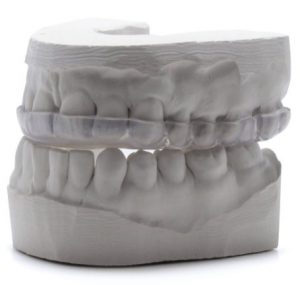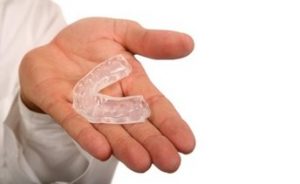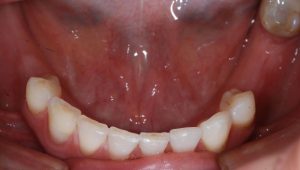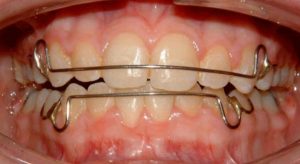Should I wear an upper or lower nightguard?
If you are a nighttime grinder (we’re talking about teeth here!) then you’re probably wondering if you should wear a nightguard. Nightguards protect your teeth from chipping and breaking. They also protect your fillings, crowns, and other dental work. Wearing a nightguard reduces the stress on your jaw joints and head and neck muscles. Heavy tooth grinders and those with visible symptoms, such as persistent headaches or a history of tooth fracture, should wear a nightguard every night.

Before you go ahead and purchase a fancy custom nightguard, you need to decide between an upper or lower nightguard. And no, you can’t wear both at the same time (that would be considered a sleep apnea device). This means that you must choose either an upper nightguard or a lower nightguard. So which is the best option for you? Here are a few things to consider when deciding between these two options:
A lower nightguard is the default option

Most dentists recommend wearing a lower nightguard to most patients. Why? First, a lower nightguard is usually more comfortable to wear. It’s also less likely to fall out of your mouth due to gravitational forces. Most importantly, a lower nightguard directly protects your jaw joints (which are connected to your lower teeth). As a result, we usually recommend that you go with a lower nightguard unless there are reasons not to. What are these reasons? Let’s find out…
When is an upper nightguard more appropriate?
There are a few scenarios where an upper nightguard is preferred to a lower one. Here are a few common examples:
(1) Multiple missing lower teeth

You need enough teeth to anchor and stabilize your nightguard in its place. Missing teeth can make it difficult to secure your nightguard. Therefore, if you have a couple of missing lower teeth, but you have all of your upper teeth, then it’s better to wear an upper nightguard. Additionally, if you start fixing your missing teeth, your nightguard may no longer fit. This is another reason to avoid wearing a nightguard when you have multiple missing teeth.
(2) Dental implants in the lower arch
It’s best to avoid wearing a nightguard directly on top of dental implants. Nightguards hug your teeth firmly and place a lot of strain on them. This added pressure could potentially damage your dental implants over time. As a result, it’s best not to wear your nightguard on top of dental implants when given the option. If you have several dental implants in your bottom jaw and none on top, then you should consider wearing an upper nightguard. If you insist on wearing a nightguard on top of your dental implants, then you must visit your dentist to hallow out the areas that grip your dental implants. This will ensure that your nightguard does not place any unwanted forces on your implants which can lead to failure and other problems.
(3) Orthodontic retainers

Pay attention to this one if you’ve had braces or clear aligners to straighten your smile. Generally speaking, the lower teeth are far more likely to shift over time and become crooked. If you’ve had orthodontic work in the past and you’ve worried about your teeth relapsing, you might be better off wearing an upper nightguard combined with a lower retainer. This way you will protect your lower teeth from shifting (by wearing a lower retainer) while protecting your teeth from the harmful effects of teeth grinding (by wearing an upper nightguard). This is especially true if you still have your wisdom, which greatly increases the chances of lower teeth shifting over time.
(4) Inabailty to wear a lower nightguard
The point of a nightguard is to use it and wear it every night. Unfortunately, not everyone ends up using their nightguard on a consistent basis. People with a small mouth or a large tongue may end up being uncomfortable with their nightguard and thus not using their device. If this applies to you, then you should consider wearing an upper nightguard instead of a lower one. It’s possible that you’re going to fare better with an upper nightguard as opposed to a lower one.
How to choose between an upper or lower night guard?

Hopefully, by now you have a good idea of which nightguard best suits your needs. If you’re still indecisive, talk to your dentist for further guidance. You can also experiment with over-the-counter nightguards, which are relatively inexpensive, to see which one you’re more comfortable with. But don’t overthink it too much. At the end of the day, it’s more important the wear your nightguard consistently than to worry about which nightguard you use. Both an upper and a lower nightguard are effective at protecting your teeth and jaws against the harmful effects of teeth grinding. A well-designed nightguard will protect your mouth regardless of which arch it sits upon. So find a nightguard that fits your mouth and start using it. Otherwise be ready to spend a ton of time and money sitting in your dentist’s chair and fixing those broken teeth and failed dental restorations!
0 Comments